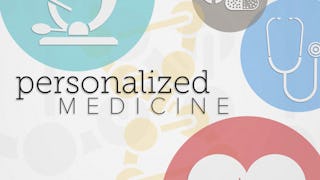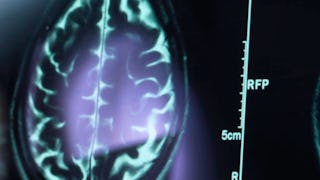Filter by
SubjectRequired
LanguageRequired
The language used throughout the course, in both instruction and assessments.
Learning ProductRequired
LevelRequired
DurationRequired
SkillsRequired
SubtitlesRequired
EducatorRequired
Explore the Functional Medicine Course Catalog
 Status: Free Trial
Status: Free TrialUniversity of California, Irvine
Skills you'll gain: Go (Programming Language), Object Oriented Programming (OOP), Algorithms, JSON, Programming Principles, OS Process Management, Functional Design, Data Structures, Other Programming Languages, System Programming, Development Environment, Software Design, Remote Access Systems, Software Installation, Operating Systems, File Management, Program Development, Computer Architecture
 Status: Preview
Status: PreviewUniversity of Geneva
Skills you'll gain: International Relations, Leadership and Management, Strategic Partnership, Marketing, Fundraising, Leadership, Governance, Public Policies, Business, Organizational Strategy, Organizational Structure, World History, Cross-Functional Collaboration
 Status: Preview
Status: PreviewJetBrains
Skills you'll gain: Kotlin, Object Oriented Programming (OOP), Java, Java Programming, Android Development, IntelliJ IDEA, Interoperability, Unit Testing
 Status: Preview
Status: PreviewVanderbilt University
Skills you'll gain: Precision Medicine, Medical Science and Research, Health Informatics, Biostatistics, Electronic Medical Record, Bioinformatics, Healthcare Ethics, Clinical Trials, Clinical Research, Molecular Biology, Pharmacology
 Status: Preview
Status: PreviewJohns Hopkins University
Skills you'll gain: Verification And Validation, Environmental Science, Research, Safety Assurance, Scientific Methods, Laboratory Research, Biostatistics, Bioinformatics, Research Methodologies, Research Design, Epidemiology, Risk Analysis, Data Synthesis, Statistical Methods, Statistical Analysis

Yale University
Skills you'll gain: Medical Imaging, Radiology, Radiography, X-Ray Computed Tomography, Medical Ultrasonography, Magnetic Resonance Imaging, Neurology, Pathology, Image Analysis, Anatomy, Gynecology
 Status: Free Trial
Status: Free TrialÉcole Polytechnique Fédérale de Lausanne
Skills you'll gain: Scala Programming, Software Design, Software Design Patterns, Functional Design, Event-Driven Programming, Java, Programming Principles, Performance Tuning, Data Structures, Algorithms
 Status: Free Trial
Status: Free TrialUniversity of California, Irvine
Skills you'll gain: Cash Management, Financial Analysis, Financial Statements, Budgeting, Accounting, Cash Flow Forecasting, Business Valuation, Financial Accounting, Finance, Financial Management, Balance Sheet
 Status: Preview
Status: PreviewStanford University
Skills you'll gain: Logical Reasoning, Computational Logic, Deductive Reasoning, Computational Thinking, Problem Solving, Business Logic, Functional Design, Programming Principles
 Status: Free Trial
Status: Free TrialSkills you'll gain: Consulting, Relationship Management, Business Consulting, Product Strategy, SAP Applications, Technical Consulting, Relationship Building, Project Management, Project Management Life Cycle, Consultative Approaches, Project Implementation, Agile Methodology, Waterfall Methodology, Solution Delivery, Enterprise Resource Planning, Systems Thinking, User Acceptance Testing (UAT), Business Transformation, Design Thinking
 Status: Free Trial
Status: Free TrialUniversity of Illinois Urbana-Champaign
Skills you'll gain: Data Storytelling, Marketing Analytics, Data Presentation, Data Visualization, Data Governance, Extract, Transform, Load, Exploratory Data Analysis, Data Collection, Data Quality, Business Analysis, Data Visualization Software, Analytics, Business Analytics, Customer Analysis, Machine Learning Algorithms, Robotic Process Automation, Data-Driven Decision-Making, Data Analysis, Machine Learning, Power BI
 Status: Preview
Status: PreviewLund University
Skills you'll gain: Environment and Resource Management, Materials Management, Environmental Science, Systems Thinking, Supply Chain Management, Environmental Policy, Business Strategies, Industrial Design, Business Analysis, Innovation, Stakeholder Engagement, Policy Analysis, Consumer Behaviour
Functional Medicine learners also search
In summary, here are 10 of our most popular functional medicine courses
- Programming with Google Go: University of California, Irvine
- International Organizations Management : University of Geneva
- Kotlin for Java Developers: JetBrains
- Case Studies in Personalized Medicine: Vanderbilt University
- Evidence-based Toxicology: Johns Hopkins University
- Visualizing the Living Body: Diagnostic Imaging: Yale University
- Functional Program Design in Scala: École Polytechnique Fédérale de Lausanne
- Finance for Non-Financial Professionals: University of California, Irvine
- Introduction to Logic: Stanford University
- SAP Professional Fundamentals: SAP










